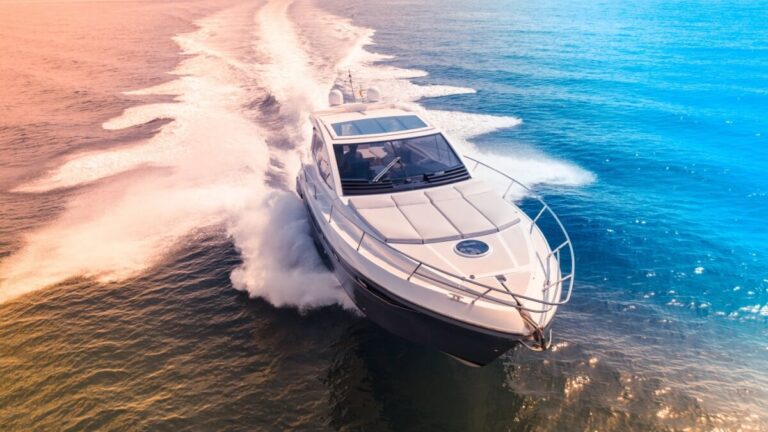When it comes to selecting the best type of auto insurance in Florida, drivers must navigate a complex landscape shaped by the state’s unique legal requirements, environmental factors, and the diverse needs of its motorists.
Florida’s status as a no-fault insurance state significantly influences the types of coverage that drivers should consider to ensure they are adequately protected.
This article aims to dissect the intricacies of auto insurance in the Sunshine State, guiding drivers toward making informed decisions that cater to their specific circumstances.
Understanding Florida’s No-Fault Insurance System

Florida’s no-fault insurance system mandates that drivers carry Personal Injury Protection (PIP) and Property Damage Liability (PDL) as part of their auto insurance policy.
PIP covers medical expenses, lost wages, and other related costs regardless of who is at fault in an accident, up to the limits of the policy, typically $10,000 in Florida. PDL, on the other hand, pays for damages you or someone driving your car causes to another person’s property.
While PIP and PDL are the minimum legal requirements, relying solely on these coverages may not provide comprehensive protection. For instance, PIP does not cover the cost of repairs to your vehicle if you are at fault in an accident, nor does it cover damages from other causes like theft or natural disasters.
This is where additional coverage types come into play.
Collision Coverage
Collision coverage is paramount for drivers in the sunshine state, especially considering the high rate of vehicular accidents in Florida, click here to learn more. This type of insurance pays for the repair or replacement of your car if it’s damaged in an accident, regardless of fault.
Given the potential for high repair costs, collision coverage can be a financial lifesaver, ensuring that an accident doesn’t leave you without transportation or with a hefty bill.
Comprehensive Coverage

Florida’s unique environmental conditions, such as its propensity for hurricanes, flooding, and even the occasional sinkhole, make comprehensive coverage an essential consideration for drivers. This coverage protects against damages not caused by a collision, including natural disasters, theft, vandalism, and other unforeseen events.
With the state’s susceptibility to extreme weather, comprehensive coverage offers a layer of financial protection that can mitigate the risk of significant out-of-pocket expenses.
Uninsured/Underinsured Motorist Coverage
Despite legal requirements, a significant number of Florida drivers are uninsured or underinsured. This reality poses a risk to insured drivers, as being involved in an accident with an uninsured driver can lead to challenges in receiving compensation for injuries or damages.
Uninsured/Underinsured Motorist Coverage (UM/UIM) provides a safety net, covering the gap between an at-fault driver’s insurance and the actual costs of your injuries or damages, ensuring you’re not left footing the bill.
Bodily Injury Liability Coverage

In Florida, while Bodily Injury Liability (BIL) coverage is not a legal requirement for all drivers, it is nonetheless strongly advised for comprehensive protection on the road.
BIL coverage is designed to cover the costs associated with serious and permanent injuries or fatalities that you may unintentionally cause to others in an automobile accident. This type of insurance is particularly crucial because it extends beyond the mere payment of medical bills; it can also cover lost wages, pain and suffering, and other damages for which you might be held liable in the event of a serious crash.
Moreover, BIL coverage plays a critical role in safeguarding your assets by providing for your legal defense should you find yourself facing a lawsuit as a result of an accident.
Given the unpredictable nature of road incidents and the substantial financial burdens they can impose, having BIL coverage is a prudent measure to protect oneself against the unforeseen.
Furthermore, the litigious environment in which we live today amplifies the importance of BIL coverage.
Legal actions arising from automobile accidents can quickly escalate, leading to settlements or judgments that far exceed the initial medical costs. For individuals without adequate BIL coverage, these expenses can be devastating, potentially resulting in the loss of personal assets, savings, or even future earnings.
The protection BIL offers goes beyond the immediate aftermath of an accident; it is an investment in one’s long-term financial security and peace of mind. Especially in a state like Florida, known for its high rate of uninsured and underinsured drivers, carrying BIL coverage ensures that you are prepared for a wide range of liabilities.
Opting for this coverage can be a safeguard against the significant financial and legal repercussions of a serious accident, making it an essential component of a well-rounded auto insurance policy.
Making the Right Choice

Determining the best type of auto insurance in Florida hinges on several factors, including your driving habits, the value of your vehicle, your financial situation, and your tolerance for risk. A comprehensive insurance policy that includes PIP, PDL, collision, comprehensive, UM/UIM, and BIL coverage can offer robust protection.
However, the cost of premiums must be balanced with the level of coverage you realistically need.
For drivers with newer or high-value vehicles, investing in comprehensive and collision coverage is a wise decision, protecting against a wide range of potential losses. On the other hand, drivers with older, less valuable vehicles might opt for a more basic policy, prioritizing PIP, PDL, and UM/UIM coverage.
It’s also crucial to consider your personal financial situation when selecting deductibles and coverage limits.
Higher deductibles can lower your premium but mean more out-of-pocket expenses in the event of a claim. Similarly, higher coverage limits offer more protection but come at a higher cost.
Navigating the complexities of auto insurance in Florida requires a careful assessment of your individual needs and a thorough understanding of the options available. First steps to take after a car accident include ensuring everyone’s safety, exchanging insurance information, and promptly reporting the incident to your insurance provider
The best type of auto insurance is one that provides adequate protection without overextending your budget. Given the state’s no-fault system, environmental risks, and the prevalence of uninsured drivers, a policy that extends beyond the minimum legal requirements is advisable for most drivers.
Ultimately, the goal is to strike a balance between cost and coverage, ensuring that you’re protected against the unique challenges of driving in Florida.
Consulting with an insurance professional can provide personalized advice, helping you to make an informed decision that safeguards your vehicle, your finances, and your peace of mind.
Related Posts:
- Why Every Contractor Business Needs General…
- Product Liability: What to Do if a Defective Product…
- Tips for Assessing and Updating Your Home Insurance Policy
- Finding the Best Insurance Car for Your Needs - 2024 Guide
- Houston Car Accident Attorneys: Your Trusted Allies…
- The Role of Personal Injury Lawyers in the Recovery…







